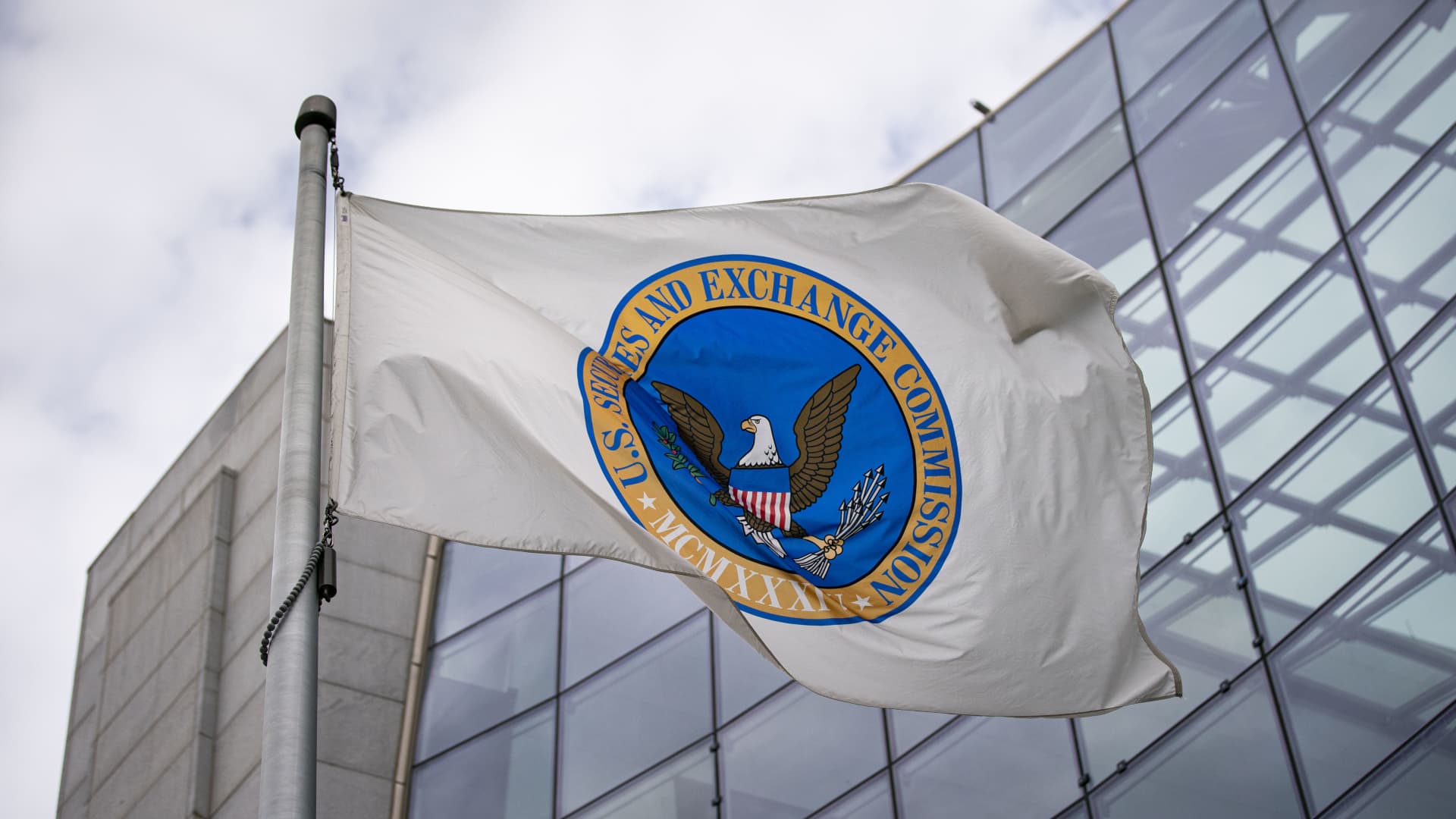A flag outside the U.S. Securities and Exchange Commission headquarters in Washington, D.C., U.S., on Wednesday, Feb. 23, 2022.
Al Drago | Bloomberg | Getty Images
On Monday, the Securities and Exchange Commission said it charged 11 people for their roles in creating and promoting an allegedly fraudulent crypto pyramid and Ponzi scheme that raised more than $300 million from millions of retail investors worldwide, including in the United States.
The scheme, called Forsage, claimed to be a decentralized smart contract platform, and it allowed millions of retail investors to enter into transactions via smart contracts that operated on the ethereum, tron, and binance blockchains. But under the hood, the SEC alleges that for more than two years, the setup functioned like a standard pyramid scheme, in which investors earned profits by recruiting others into the operation.
In a statement, the SEC added that Forsage operated a typical Ponzi structure, wherein it allegedly used assets from new investors to pay earlier ones.
“As the complaint alleges, Forsage is a fraudulent pyramid scheme launched on a massive scale and aggressively marketed to investors,” wrote Carolyn Welshhans, acting chief of the SEC’s Crypto Assets and Cyber Unit.
“Fraudsters cannot circumvent the federal securities laws by focusing their schemes on smart contracts and blockchains.”
Forsage, through its support platform, declined to offer a method for contacting the company and did not offer comment.
Four of the…













